QuestionHello,
I'm not a proffesional Cockatiel breeder or anything, but my pet-bird Charlie, mated with another pet bird (Banjo), and Banjo's been laying eggs. Well, we thought they were both boys at first.. (Imagine our suprise when we saw the eggs!!!) But Banjo (Whom we figured had to've been the female..) wouldn't lay on the eggs! Nope, she only laid them. But, however, Charlie WOULD lay on the eggs.. Odd hm? Unfortunately.. He was unsuccesful in hatching them. No, he never hatched one. So we finally got an incubator. (We gave up hope on Charlie) And the next egg she laid (she only laid one this time) we put it in the incubator. Now, I have a couple of questions, considering I am a total 'know-nothing' when it comes to breeding Cockatiels. (We got Charlie full-grown so there was really no need to learn about all this stuff)
1. Could Banjo not have her female instincts she's supposed to have, for hatching the egg?
2. The baby has been bumbed a few times.. Could that hinder its hatching? Or will the egg whites protect it?
2. When (if) the baby hatches, what are we supposed to feed it? Our local Wal-Mart doesn't sell Baby-Bird-Mush, and we don't have a local pet-store.. Could we just grind up some bird seed, and boil it?
3. If the bird has been incubated, should we put the baby back in the cage with Charlie and Banjo, considering Charlie is quite mean? Or would he kill the baby?
All answers will be greatly appreciated. Thanks for listening!
Shiri
AnswerHi, Shiri.
I really need some more information from you: (1) age of the birds; (2) how many eggs were laid and on what dates; (3) how long did incubation last; (4) did they abandon the eggs on their own or did you remove them.
It's not that the bird was unsuccessful in hatching these eggs, it could be the eggs were infertile to begin with or they developed some type of problems preventing them from hatching. Did you crack open any of the eggs to see what might have been inside them? Banjo most likely knows what to do (if she's old enough)...there's more likely something else wrong with the setup or other.
Male tiels normally incubate their eggs during the day and females at night. Sometimes only the female will incubate the eggs, and I've seen both birds incubate eggs together. I've rarely seen just a male incubate tiel eggs.
You should avoid bumping the egg(s) as much as possible. However, eggs in an incubator have to be rotated at least every 12 hours.
If you know nothing about all this, you should definitely not be incubating eggs. When a person incubates eggs, babies have to be handfed every hour round the clock for the first few days. This means during the nighttime, you will need to set your alarm clock every hour to get up and handfeed any babies. This is not an easy task, as baby tiels are very small and handfeeding is very difficult at best. Handfeeding means feeding baby parrot handfeeding formula with a handfeeding syringe. There's SO MUCH to learn about how to do this, when, etc., etc. If you don't have handfeeding formula available locally, you'll need to order it off the internet. I use Kaytee Exact baby parrot handfeeding formula. There are other brands available, but I've had the most success using Kaytee Exact. No, you cannot just grind up bird seed and boil it. If you are going to do this, you need to do this correctly.
No, you cannot put the baby back with the parent birds if it's been hatched in an incubator. They will kill it or ignore it completely. There is no way they would know this is their baby. If you incubate eggs, you have to assume the role of the parents in every way, shape, and form, feed the babies properly, keep them warm enough, etc., or the baby(ies) will not survive.
Something is amiss if your bird is only laying 1 egg in a clutch. I'd need more details in order to try to figure all this out.
Visit my website for more information on baby birds, handfeeding, etc.
www.angelfire.com/falcon/birdinfo/index.html
Chrys

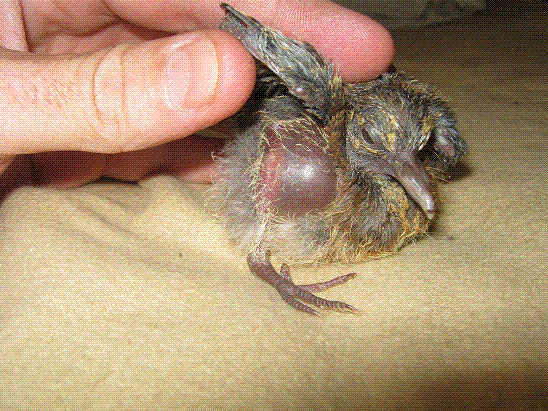 Baby Pigeon
Question
Cosmo
Hi Roger
We picked up a baby pigeon, ap
Baby Pigeon
Question
Cosmo
Hi Roger
We picked up a baby pigeon, ap
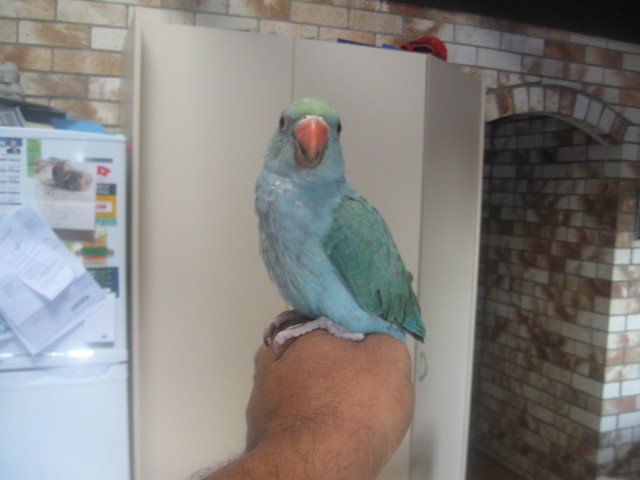 Color of my indian ringneck
Question
Boots
I have an eleven week old male ringneck
Color of my indian ringneck
Question
Boots
I have an eleven week old male ringneck
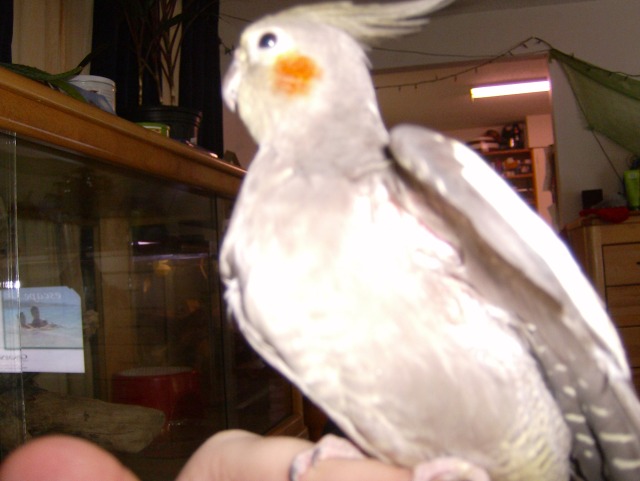 my cockitale mocha
QuestionQUESTION: I have a cokitale that will be 3 on A
my cockitale mocha
QuestionQUESTION: I have a cokitale that will be 3 on A
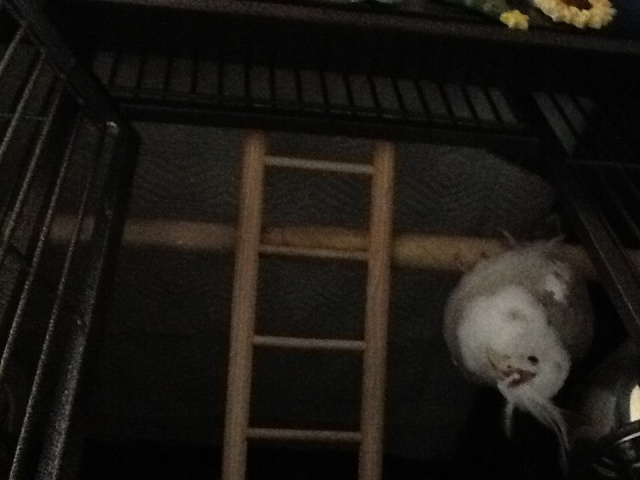 White faced cockatiel injury
Question
cockatiel injury
My 8 year old cockatie
White faced cockatiel injury
Question
cockatiel injury
My 8 year old cockatie
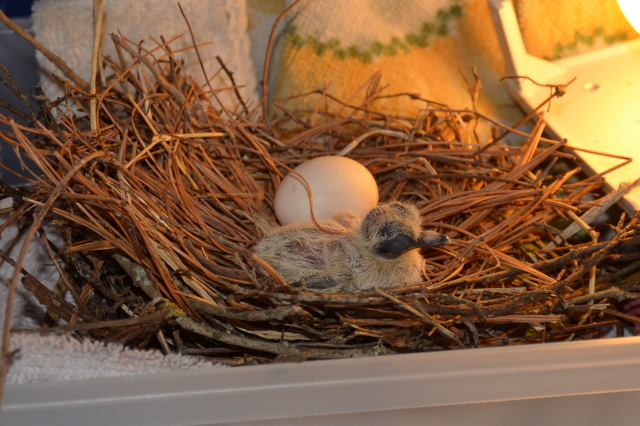 mourning dove
Question
baby mourning dove
Hello,
My boys found a baby
mourning dove
Question
baby mourning dove
Hello,
My boys found a baby